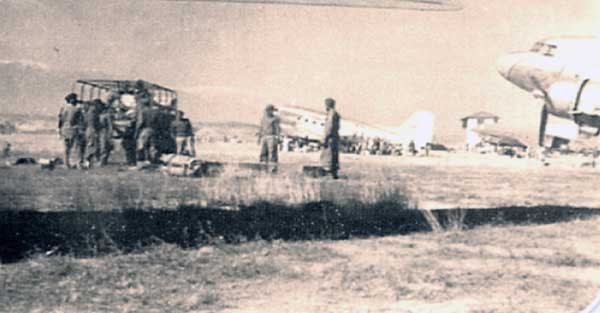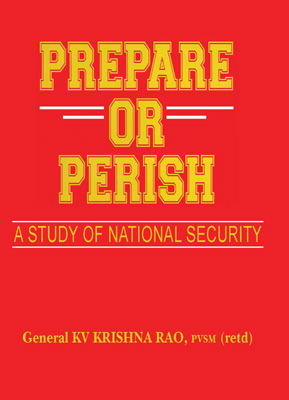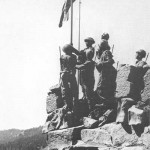
Political Will
As has been brought out, the 1947-48 Jammu and Kashmir War was really forced on the country in its infancy as an Independent Nation. There was not much time to react, nor were any preparations possible. Pakistan launched invasion of Jammu and Kashmir State on October 20, 1947 and made significant progress by October 24, whereby a serious threat was posed to Srinagar, the capital of Jammu and Kashmir. The State of Jammu and Kashmir appealed for help to the Government of India only on October 25. No military assistance could be rendered, unless the State acceded to India, as per the Partition Agreement. The instrument of accession was received on October 26. Any delay in the accession of the State or the despatch of the troops would have meant an irreparable disaster; resulting in the loss of Jammu and Kashmir. The situation needed sagacity of a high order to understand the National Vital Interests, and political will to react speedily and protect these interests. Pakistan came into existence on the basis of a two nation theory; and maintained throughout that, because Jammu and Kashmir has a majority of Muslim population, the State should rightfully belong to Pakistan. To attain its objective, Pakistan never considered any means as unfair, including the use of force. On the other hand, India always maintained that the will of the people should prevail, irrespective of the content of population of a State. Thus, while accepting accession of the State on October 26, it was ensured that the request had the support of the people, as represented by the major political party, the National Conference led by Sheikh Mohammed Abdullah. Concurrently, the Service Chiefs, all of whom were British, were warned on October 25 to prepare plans and be ready to despatch essential troops for the defence of Jammu and Kashmir.
The troops concerned were only nominated on October 26 and movement of these commenced on the morning of October 27. As mentioned earlier, a small number of troops were airlifted and others sent by road. It is indeed commendable that the political masters, who had little experience of dealing with such a grave situation, reacted so very soundly and promptly. Full credit must be given to Pandit Jawaharlal Nehru, the Prime Minister, Sardar Vallabbhai Patel the Deputy Prime Minister and V.P. Menon the Secretary to the Ministry of States. It may be mentioned that Gandhiji fully supported the action of the Indian Government. Subsequently, operations for evicting the aggressors were pursued relentlessly, till a ceasefire, was achieved, under the aegis of the United Nations. In fact, if at the end of 1948, operations were continued, perhaps the enemy could have been evicted even from the remainder of the territory under their occupation, with of course, additional forces. However, being conscious of the need to restore peace and having complete faith and confidence in the United Nations to ensure justice, the Indian Government agreed to the ceasefire, It will also be recalled that it is the Government of India, which initially took the case to the United Nations. Thus, from the beginning of the trouble, on October 20, 1947, in Jammu and Kashmir, up to the time of ceasefire, on January 1, 1949, great sagacity and firm political will was displayed by the political leadership of India.
Maintenance of the Aim
Having been given the necessary political directions and spurred by the righteousness of the cause, the Armed Forces, i.e., in this case, the Army and Air Force, constantly kept the aim of the operations in view and vigorously pursued it. Initially, the aim was to defend Srinagar at all costs and subsequently it was to evict the invaders from the territory of Jammu and Kashmir. Both Lt. Col. Diwan Ranjit Rai, the commander of the small force that was initially inducted, and Brigadier L.P. Sen, the commander of 161 Infantry Brigade, never forgot the aim and in fact pursued it with great vigour. Subsequently, as the forces were built up, the higher commanders, namely, Generals Kalwant Singh, Thimayya and Atma Singh, as well as the Army Commander, General Cariappa, left no stone unturned in order to ensure that the aim was achieved. The operations to drive the enemy out beyond Baramula in the Kashmir Valley, and beyond Jhangar-Rajauri in the Jammu Province, during the first part of the war, stand testimony to the important role of General Kalwant Singh. Subsequently, the operations to drive the enemy out beyond Uri and Tithwal, as well as the link-up with Leh, show the aggressive role and relentless pursuit of the aim by General Thimayya. Similarly, the operations resulting in the link-up with Punch in the Jammu Province indicated that General Atma Singh never lost sight of the aim, and carried out his operations vigorously. Overall, it was because of General Cariappa’s clarity of vision and determination, that the aim was largely fulfilled. In the initial stages though the enemy was knocking at the gates of Srinagar and was quite close to Jammu, by the end of the operations, he was driven well out from the bulk of the territory; and more than two-thirds of Jammu and Kashmir was retrieved.
Offensive Action
It is an axiom that no war can be won by defensive action alone. In the Jammu and Kashmir operations, right from the outset, Indian forces took the offensive, after initially ensuring the defence of Srinagar airfield and city. This offensive spirit was maintained throughout the operations. Barring a few reverses at times such as in the defence of Jhangar, or the attack on Zozi La, which happen in war, by and large Indian forces were imbibed throughout with an aggressive spirit of a high order. The defence of Punch under extremely adverse conditions, is a classic example of even defence being carried out offensively. Needless to stress, such a spirit is vital for victory in any war.
Surprise and Deception
The importance of surprise and deception, for success in war, cannot be overemphasised. Largely, this was well understood by the Indian forces. In most of the operations carried out, adequate attention was paid to these aspects. Some of the more important examples of the contribution of surprise and deception to Indian victory, were the employment of tanks at Sheletang and Zozi La, the reinforcement of Leh, the Tithwal operation itself carried out in conjunction with the advance beyond Uri, the decision to link up with Punch via Mendhar and so on. On many an occasion, surprise was also achieved by the speed of the operations.
Improvisation
As brought out earlier, the Indian Army was in the process of reorganizing itself after the partition of the country and before it could do so, got involved in internal security duties of considerable magnitude. Even as the movement of affected population was completed and law and order restored, it had to undertake operations in Jammu and Kashmir without any respite. These operations were carried out over difficult and rugged terrain, under conditions of inclement weather and with inadequate fire support and administrative support. The infrastructure in the way of road communications and signal communications was primitive. Engineers did not have adequate and modern equipment Troops were inadequately clothed and equipped. Thus, at every stage, improvisation had to be resorted to at all levels. The troops excelled in this regard and developed a high degree of confidence in their ability to press on, irrespective of any constraints.
Cooperation and Coordination
For the success of any operation, intimate cooperation and effective coordination, not only within Services, but between Services, is essential. For the reasons already brought out earlier, there was not much time to integrate units and formations as is normally done in peace time. However, because of Indian forces realizing the righteousness of their cause and the responsibility that rested on their shoulders, excellent cooperation was achieved between the various Arms and Services of the Army, particularly, Infantry and Armour. Apart from this, the Indian Air Force played a vital role in providing close offensive support to the ground forces as also transport support and contributed in substantial measure towards their success. In many a case, shortage of artillery support was compensated for by offensive air support to some extent. The close cooperation and team work achieved between the Army and the Air Force in this war laid the foundations for a high degree of inter-Service cooperation in all the subsequent wars.
Logistics
The success of a war depends to a considerable extent on the logistic back-up provided for it. Provision of ammunition, weapons, rations, fuel and ordnance stores, medical cover and evacuation of casualties, repair and recovery of equipment, timely reinforcement of units, all these require fore-thought, meticulous planning and implementation. Where pre-planning is possible during peace time, a certain amount of logistic infrastructure can be previously developed. However, in the case of this war, as no such pre-planning was possible, everything had to be undertaken from scratch after the operations started. The fact that the Administrative Staff and Services responded so effectively to the needs of the fighting troops, shows the significant contribution they made to the success of the operations.
Civil Military Relations
A unique feature of these operations was the excellent rapport that developed between the local civil and the Military that went to their help. Senior political leaders like Bakshi, Dhar and Nazir maintained constant liaison with the Army and even accompanied them during operations. The people themselves fully cooperated with the Army and assisted in intelligence end logistics. As the areas were liberated, the Army extended medical assistance, carried out read development and helped in reconstruction. Subsequently, the Jammu and Kashmir Militia was raised by the State Government and trained by the Army.
Miscellaneous
There are many tactical lessons that came out during these operations, such as need for careful study of the enemy and his tactics, necessity for holding important ground and effective coordination in defence, need for avoiding frontal attacks, need for thorough planning and reconnaissance, advantages of night attacks, value of outflanking moves, patrolling, protection of line of communications, administrative planning, avoidance of ad hocism and so on. In actual fact the Indian Army learnt many of these lessons during the Second World War; and there was actually a repetition of many of these in this war. As it happens, some of the units learnt these the hard way, but improved their performance as operations progressed.





